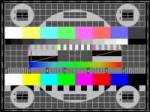Latvia also suspends Russian TV channel for war propaganda

Latvia has suspended broadcasting of the Russian TV channel RTR Planeta (TV Rossiaya) for three months. This follows monitoring carried out by the National Council on Electronic Media from March 2 to 17 which found the channel to be in breach of Latvian law. It is accused of war propaganda – of trying to justify military aggression and incitement to inter-ethnic enmity in its programmes about Ukraine.
If the elements in breach of the law are not removed, the ban will be extended. Latvia’s media watchdog is also considering such a ban against another Russian channel, RBK.
Following the decades of Soviet rule, 25% of the Latvian population are ethnic Russians. This is doubtless making Latvia’s leaders especially alert to such propaganda given the Russian rhetoric about protecting Russian nationals and Russian speakers abroad.
The suspension follows similar moves in Lithuania against the Russian TV channel NTV Mir [NTV World] and probably also Rossiya and ORT [First Channel].
As reported, on March 11 Ukraine’s National TV and Radio Broadcasting Council ordered all cable operators to stop transmitting four channels: Rossiya 1; ORT [Channel One]; NTV and the news channel Rossiya 24. The Council stated that the channels were a threat to national security.
All of the above moves have come in for criticism. Most vehement condemnation, of course, has come from Russia which has called them all “censorship”. It chooses not to notice that the puppet government installed after Russian forces seized government buildings in Simferopol removed virtually all Ukrainian channels from air and that as of May 9, people calling for the Crimea to be returned under Ukrainian jurisdiction will face draconian fines or even imprisonment according to Russian legislation.
Many observers from western democracies have also criticized bans which, they believe, have no place in a democratic society. They possibly do not, however it is worth stressing that channels have been removed from air which are doing much more than expressing a point of view we may disagree with. The version of events and issues is entirely distorted and based on lies. The misinformation can be demonstrated, but is unlikely to be noticed by its audience which sees nothing else. The narrative is basically that which Russia’s Vladimir Putin has used to supposedly “justify” annexation of the Crimea and other intervention in Ukraine. It has rightly been condemned by a large number of authoritative Jewish organizations as untrue and deliberate manipulation of anti-Semitism concerns, as well as by historians and researchers on right-wing organizations; by the US State Department and others. The channels seldom mention such criticism at all, or when they do, seriously distort it.
Halya Coynash




